The Great American Read: Baptiste and Miranda Paul share their picks
August 2, 2018 Leave a Comment
We continue to read, debate and vote on the books of The Great American Read, and several Wisconsin writers have shared their own picks with us. Today, we enjoy several firsts: our first team (in life and work), AND our first children’s authors!
 Currently residing in Green Bay, Baptiste and Miranda Paul are the globe-trekking, dynamic duo behind the new book Adventures to School: Real-Life Journeys of Students From Around the World.
Currently residing in Green Bay, Baptiste and Miranda Paul are the globe-trekking, dynamic duo behind the new book Adventures to School: Real-Life Journeys of Students From Around the World.
As for her inevitable “I can’t choose!” answer, Miranda writes, “Asking a reader to pick a favorite book is like asking a sweet-tooth to pick a favorite dessert; these are the things that shape us and bring us joy. All the time, children ask me which of my own books is my favorite, an interrogation I’ve labeled ‘The Forbidden Question.’ I ultimately let them know the truth: my favorite book is always the one I haven’t written yet, because I intend to write forever.”
Keep reading to learn about this insightful pair and the deep emotions that drive them to create.
 Miranda Paul is the award-winning children’s author of One Plastic Bag, Water is Water, 10 Little Ninjas and more. Her books have received Junior Library Guild selection, starred reviews, and more than a dozen state list nominations.
Miranda Paul is the award-winning children’s author of One Plastic Bag, Water is Water, 10 Little Ninjas and more. Her books have received Junior Library Guild selection, starred reviews, and more than a dozen state list nominations.
 Born and raised in St. Lucia, Baptiste Paul is a native Creole speaker and has been both a soccer player and coach. His debut picture book, The Field, earned three starred reviews.
Born and raised in St. Lucia, Baptiste Paul is a native Creole speaker and has been both a soccer player and coach. His debut picture book, The Field, earned three starred reviews.
MIRANDA: Alas, no one likes a question dodger, so I’ll be definitive and choose Frankenstein, by Mary Shelley. Her creature has become iconic in the 200 years since she created it. Most people will have encountered a remake or adaptation before reading the novel, which makes the original even more surprising and intriguing. Frankenstein‘s themes remain hauntingly relevant as well. Shelley – herself a 19-year-old female castaway – included science, technology, morality, ethics, drama, philosophy and horror in her novel. (A shoutout to professor Jennifer Cognard-Black, whose analysis of the book has shaped my thinking to this day.)
Frankenstein‘s themes remain hauntingly relevant as well. Shelley – herself a 19-year-old female castaway – included science, technology, morality, ethics, drama, philosophy and horror in her novel. (A shoutout to professor Jennifer Cognard-Black, whose analysis of the book has shaped my thinking to this day.)
The legend behind Shelley’s impetus for writing it – a bet – is also fascinating to me. In 17 years, I’ve never lost a bet with my husband Baptiste. Sometimes, it’s good to be underestimated.
BAPTISTE: So many books on this list that have helped shape me into the person I am today. The Alchemist, by Paulo Coelho, is one of my favorites, though.
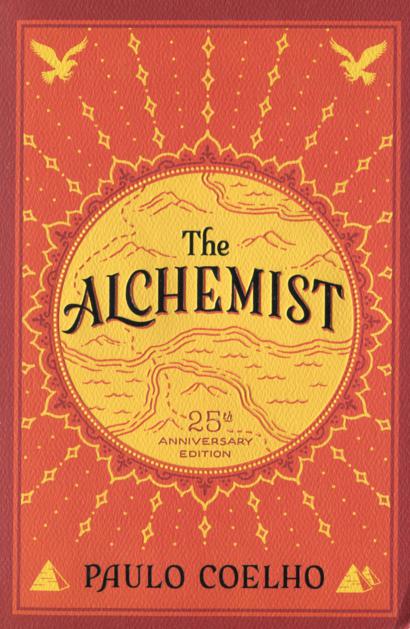 Just like Santiago, I can relate to the need for adventure. I grew up in poverty and walked more than 12 miles round trip to the only library on my side of the island. My journey WAS an adventure, though. To get to the library involved traversing a river, jumping fences, and crossing an active airport runway. Books offered this boy adventures and a way to travel the world, so I made the trek weekly. This memory is also one of the reasons why I connected so much with the children’s true stories featured in my book Adventures to School: Real-Life Journeys of Students From Around the World.
Just like Santiago, I can relate to the need for adventure. I grew up in poverty and walked more than 12 miles round trip to the only library on my side of the island. My journey WAS an adventure, though. To get to the library involved traversing a river, jumping fences, and crossing an active airport runway. Books offered this boy adventures and a way to travel the world, so I made the trek weekly. This memory is also one of the reasons why I connected so much with the children’s true stories featured in my book Adventures to School: Real-Life Journeys of Students From Around the World.
The Alchemist takes readers on an equivalent journey, which starts with a dream and follows life’s path through choices we make and decisions we must accept. Ultimately, it’s a book is about hope. There’s a subtle message about leaving the comforts of home in search of something better, mysterious, or just different. We all need to step outside of our comfortable bubbles in order to grow. To me, this book defines life as an endless pursuit. It challenges us to honor the determination that drives us and urges us to consider how the decisions we make on a daily basis change the trajectory of our lives.
What’s a novel that ISN’T on this list that you think everyone should read, and why?
MIRANDA: This is a great question! There has been an explosion of novels pushing boundaries and progressively shaping our culture in recent years – and an organization I’m a founding member of, We Need Diverse Books, helps share many of those titles.
However, I’d be remiss if I didn’t point out that the question technically excludes shorter formats almost entirely. Adult readers don’t just pick up a novel one day and start reading for the first time. They fall in love with characters, stories, and even the smell of the books that their teachers, librarians, caregivers or community provided them.
A picture book, for example, has the potential to more closely meet an “everyone should read” outcome -from a young child to an English language learner to an elderly adult. To be frank, the books on this list would scarcely be read if it weren’t for short stories and picture books that captivate new readers and cultivate them into lifelong book lovers.
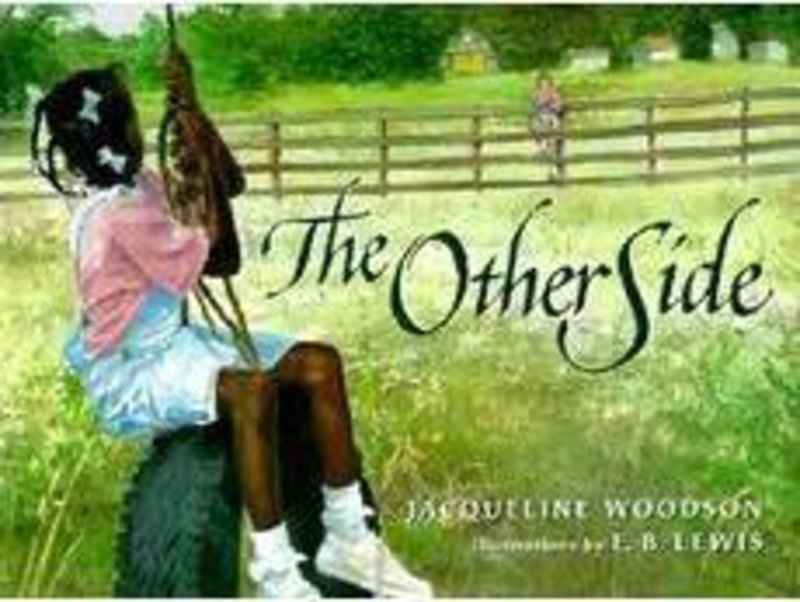 On that note, I recommend the picture book The Other Side, by Jacqueline Woodson.
On that note, I recommend the picture book The Other Side, by Jacqueline Woodson.
Also, so that I am not accused of avoiding the question altogether, a novel that should be on this list is the 2018 Newbery Honor book Piecing Me Together by Renée Watson.
BAPTISTE: Unwind, by Neal Shusterman, is one of the most insightful and thrilling books I’ve read. The style of writing is engaging right from the start.

The details make the characters come to life – you can see them sprinting or hear them breathing. Shusterman’s storytelling craft makes a reader invested in what happens to the characters, whether or not you agree with the actions they take to stay alive.
Unwind is about the dangers of valuing one group over a less desirable group of people in society. It’s based on the premise of political deals that betray morals or are hypocritical, but are made for the sake of compromise and order. It’s also about laws that were created or enacted to suppress the rights particular unwanted or “undeserving” individuals and the constant fight for dignity and survival. It’s a work of fiction, but reading my own response, it rings true to many political debates and issues today.
On a personal note, which novel (on or off this list) has had the biggest impact on your life?
MIRANDA: This question is easy: The Giver, by Lois Lowry.
 I grew up in a family affected by alcoholism (though I didn’t know that word as a young girl). At times, my home life seemed off, but I didn’t have many friends to compare my situation to. I felt ashamed of the pervading thought that maybe I knew more about right and wrong than my parents.
I grew up in a family affected by alcoholism (though I didn’t know that word as a young girl). At times, my home life seemed off, but I didn’t have many friends to compare my situation to. I felt ashamed of the pervading thought that maybe I knew more about right and wrong than my parents.
I couldn’t say that out loud, of course, because it was against the Fourth Commandment (“Honor thy father and thy mother”).
One day at school, after a particularly heavy incident at home, our teacher read the scene from The Giver where Jonas witnesses what his dad does to a weak baby in the nursery. Jonas feels conflicted and angry; there are things within his family and society that seem secretive and wrong. In the end, when Jonas escapes for what’s beyond the borders – breaking an institutional cycle – it was a revelation for me. A child’s sense of morality and the choices he made because of it were validated in Lowry’s book. If Jonas had the courage to choose, I thought, I might be brave enough to make different and healthier choices with my own life and my own family if I ever had one.
Only a few years later, I became the first person in my family to get a passport. Shortly after, I was reading The Giver aloud to my own classroom in Gambia, Africa. My students there had had their own naming ceremonies and were being exposed to dream-like technology their parents never experienced.
 There, I also came upon a remarkable environmentalist’s work, a subject which would become the focus of my debut nonfiction picture book One Plastic Bag: Isatou Ceesay and the Recycling Women of the Gambia.
There, I also came upon a remarkable environmentalist’s work, a subject which would become the focus of my debut nonfiction picture book One Plastic Bag: Isatou Ceesay and the Recycling Women of the Gambia.
Being a reader has given me freedom. Books have taken me places, in every sense possible.
BAPTISTE: Each book I’ve read adds to my story, my thoughts, and the way I see the world. There is one book that has helped me understand that while society may have an expectation or role for me to play, I can resist that to fulfill my own dreams and desires.
 That book is Invisible Man, by Ralph Ellison, and it still plays an important role in my life.
That book is Invisible Man, by Ralph Ellison, and it still plays an important role in my life.
After I read this book, I started connecting the dots from my own experiences where I was made to feel invisible. Memories surged of being told by an airport immigration officer, “You have no rights. I can do whatever I want to you and take whatever I want from you, and there is nothing you can do about it.”
This book also kindled memories from childhood, when teachers didn’t allow us to speak Creole, our home language, in school. Furthermore, Invisible Man resonated with me while I worked with homeless people on the streets of Philadelphia. They were the invisible ones – being cared for by someone who, himself, was told he was invisible. The homeless veterans and people of Philadelphia were a group shunned by most of society.
 I think that’s why, when I write, I constantly think about invisibility. I want every child to see themselves in the pages of books. My debut picture book The Field honors island kids, like me, and our Creole language – which is the language I process everything in first, even my answers to this article.
I think that’s why, when I write, I constantly think about invisibility. I want every child to see themselves in the pages of books. My debut picture book The Field honors island kids, like me, and our Creole language – which is the language I process everything in first, even my answers to this article.
There has to be a constant check and balance on gatekeepers in society if we want all people to be visible. Stripping someone of any part of their culture makes them invisible. I’m emboldened by books like Invisible Man to continue working towards more inclusion and representation of invisible people in my books.
PBS Wisconsin Public Television Author Reading The Great American Read Wisconsin Authors
 Passport
Passport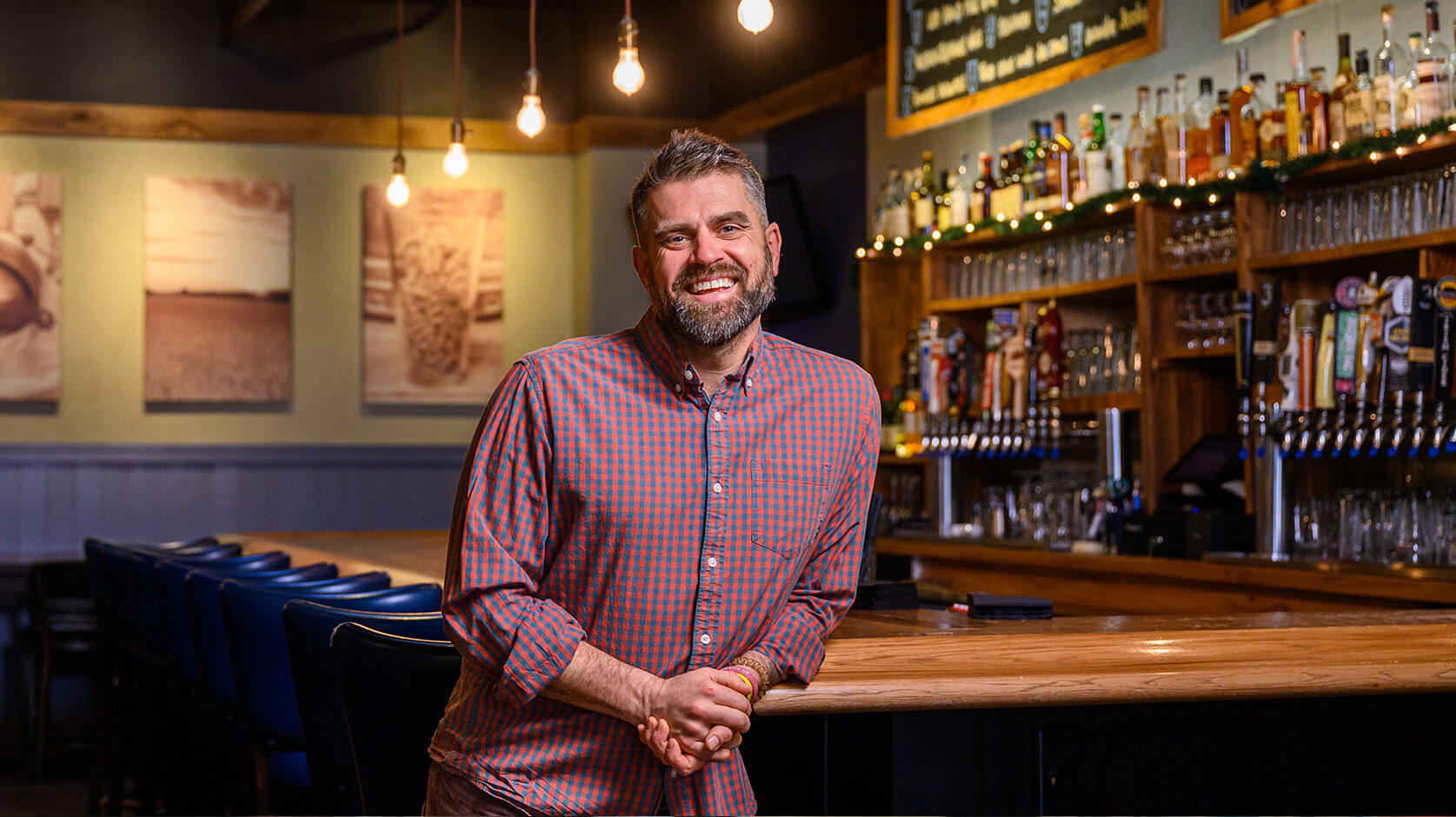

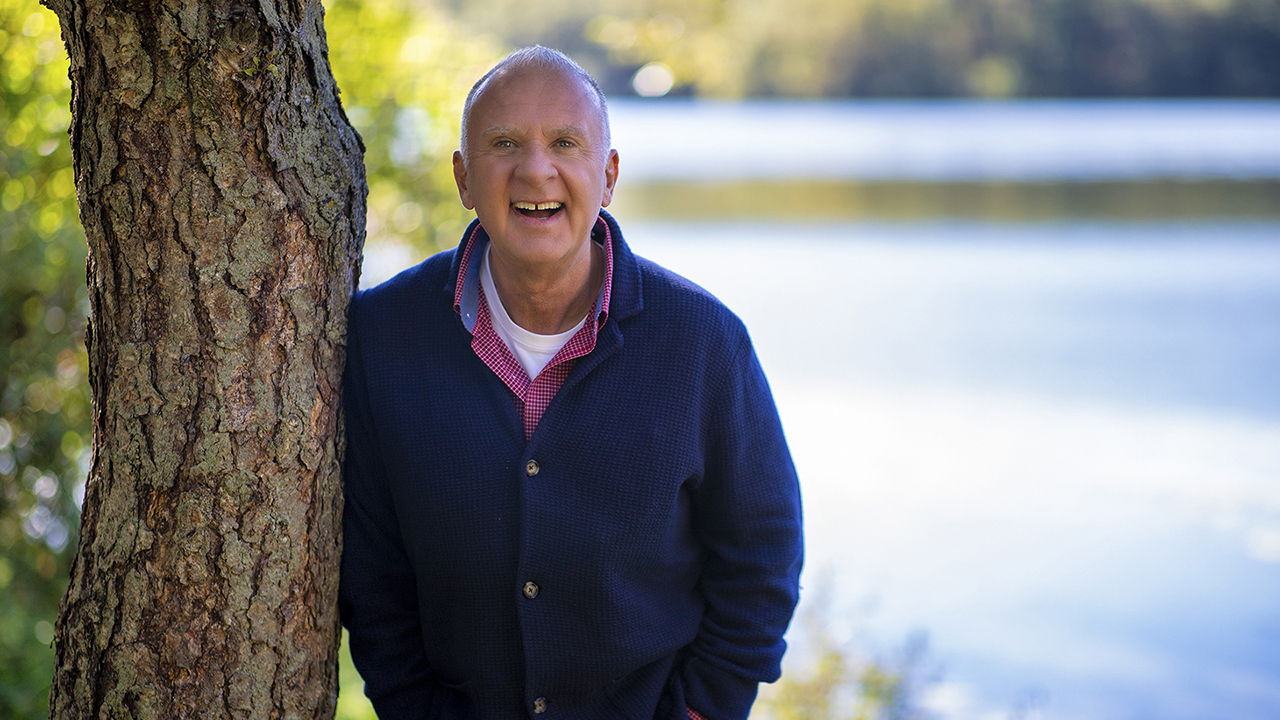
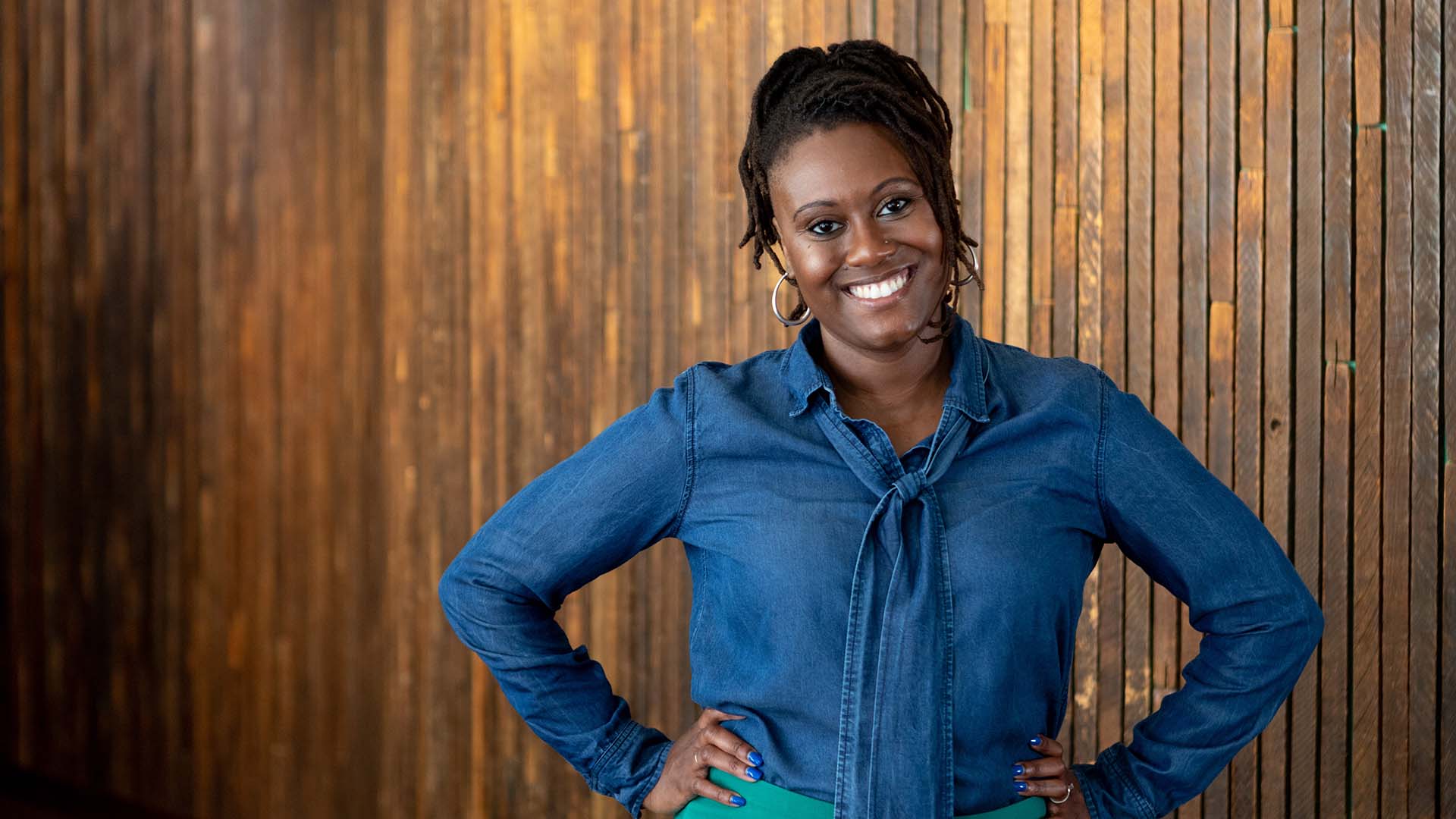
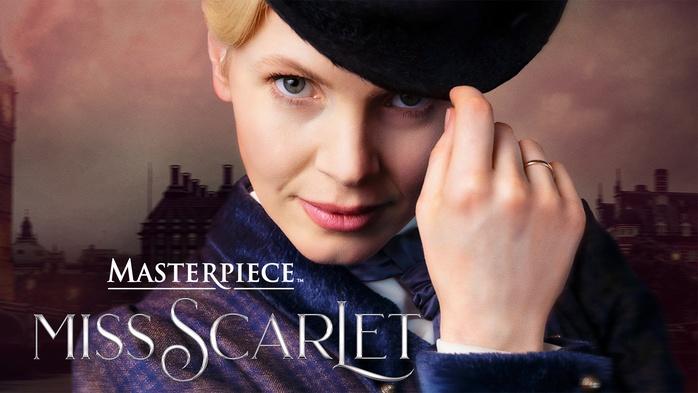
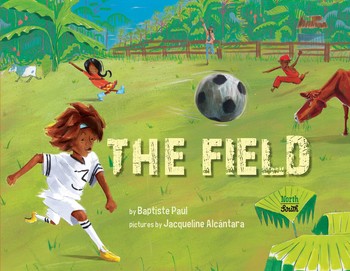


Linda says:
I used to watch Sit and Be Fit, fo you still have that program?
yo mom says:
i am a huge fan i love your books how do you come up with these ideas
Beet Hartlaub says:
WOW! NEAT!!
Kyra Zonderman says:
Always love articles about the wonderful and interesting creators of the books we read to our children. Thanks!
Jerrianne Hayslett says:
Super! Thanks for including this amazingly talented couple on your blog. They are great ambassadors, advocates and authors of books for children.
Vivian Kirkfield says:
Thank you, WPT, for lifting up books during The Great American Read! I’m thrilled to see Miranda and Baptiste Paul as ambassadors for the wider kidlit community. They are all about helping kids become lovers of books and reading…and through that, helping kids connect the dots to a promising future.
Jilanne Hoffmann says:
Interesting interview! I like the mix of recommended titles, ones that reflect diversity and varied age ranges.